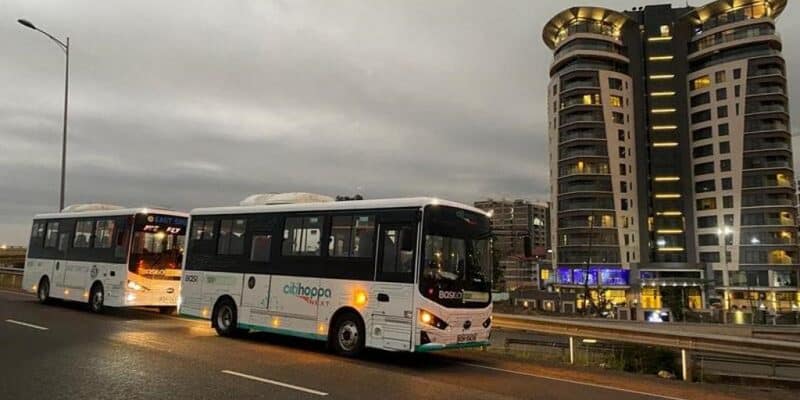Carbon dioxide sequestration and greenhouse gas (GHG) emission reduction. These are the highlights of the innovations of 10 start-ups awarded the Keeling Curve Climate Prize in Africa and the rest of the world.
In 2022, the Global Warming Mitigation Project’s (GWMP) Keeling Curve Award goes to ten start-ups for their green solutions in the mobility, finance and energy sectors. The winners of this year’s Climate Innovation Awards will share the prize money of USD 250,000.
Several African initiatives were rewarded. This is the case of the project led by the Kenyan mobility company BasiGo, founded in 2016 by Jitt Bhattacharya. Four months ago, the start-up put its locally assembled electric buses on the road in Nairobi using parts from Chinese manufacturer BYD Automotive. In Kenya, these vehicles contribute to the reduction of air pollution, which is the cause of global warming. Rwanda-based Wastezon has made a name for itself with a mobile application that connects industries to households for solid waste recycling in the capital Kigali.
In the energy sector, technology company Koko Networks won with its bioethanol-based clean cooking solution “Koko Fuel”. The start-up, co-led by Sagun Saxena and Gray Murray, provides an alternative to the use of charcoal and wood for cooking that causes deforestation and carbon dioxide (CO2) emissions in East Africa.
Encouraging the creation of carbon sinks
“Projects in this category decarbonise energy, support zero-carbon energy innovations, and pave the way for improved supply, distribution and access to low- and zero-emission energy systems around the world,” says GWMP. By definition, the Keeling curve is a graph of the evolution of the concentration of CO2 in the Earth’s atmosphere since 1958, based on a study by Charles David Keeling, to whom the eponymous prize pays tribute each year.
Read also-KENYA: SkyTeam’s TFSC award takes Kenya Airways on board sustainable innovation
The jury for this year’s award consisted mainly of Achala Abeysinghe, the Papua New Guinea representative at the Global Green Growth Institute (GGGI), Kévin Auerbacher, the legal advisor to the American car manufacturer Tesla, Paul Holthus, the founder of the World Ocean Council (WOC) based in the Hawaiian archipelago in the United States of America, Kara Hurst, Amazon’s vice president for global sustainability, and Edouard Mungaï, CEO of the Kenya Climate Innovation Centre.
Benoit-Ivan Wansi





